Have you ever wondered if your social media efforts are actually helping your SEO? The connection isn’t direct, but it’s powerful.
SEO helps people discover your content through search engines. Social media amplifies that content, spreading it to wider audiences.
When these strategies work together, your visibility grows faster, engagement improves, and your brand builds stronger authority online.
In this article, I’ll walk through how SEO and social media connect, practical strategies to make them work together, and the benefits of aligning both.
Key takeaways:
|
Synergy between SEO and Social Media
Social media may not be a direct ranking factor in Google’s algorithm, but it creates signals that indirectly influence SEO.
Think of SEO and social media like two sides of the same coin. Both aim to connect people with the right information at the right time. SEO ensures your content is visible in search engines, while social media amplifies that visibility by putting it in front of active communities.

Why SEO and social platforms matter together
According to BrightEdge’s Social-Share Analysis, sites using the Tweet Button see nearly 7× more link mentions on Twitter compared to those without it. Plus, over half of top sites use social links to boost exposure.
SEO and social media teams must work closely, using the same keywords and messages to avoid confusion. For example, if your blog targets “sustainable fashion tips,” your Instagram captions and hashtags should match.
Keyword Targeting and Optimization
A strong SEO starts with solid keyword research. But social media is also a treasure trove for new keyword ideas. By listening to what your audience talks about—their questions and problems—you discover keywords they actually care about.

Use these insights to find long-tail keywords and refine your SEO approach.
To boost reach, sprinkle these keywords in your social posts on platforms like Twitter, Pinterest, and Facebook. Mix broad and specific keywords so you hit both wide and niche audiences.
For example, if “best running shoes for flat feet” is popular, include it in your YouTube video title or Instagram Reel description. This helps both search engines and platform users find your content easier.
Optimizing Social Media Profiles for SEO
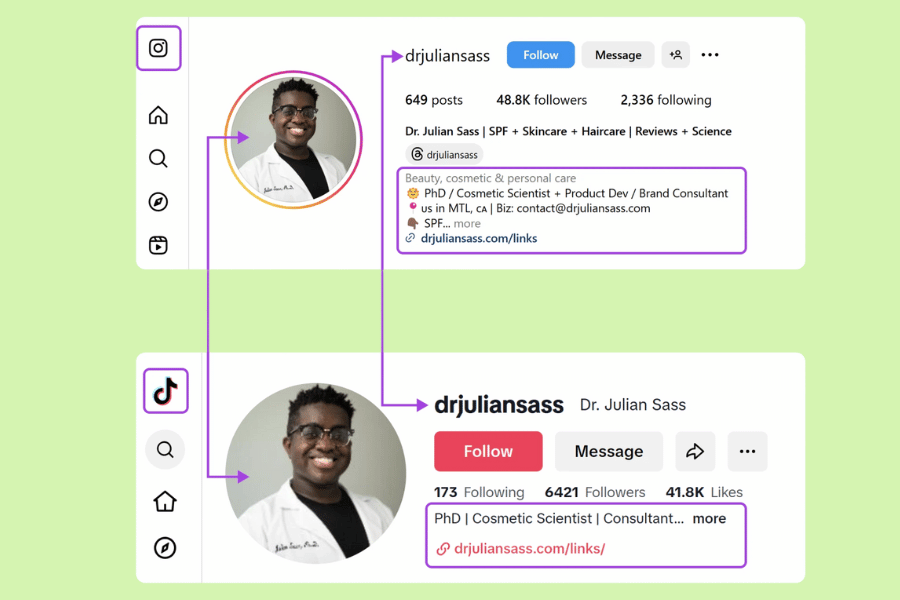
Making social profiles SEO-friendly
Many forget that social profiles themselves can rank in search results. Try searching a brand name – you’ll likely see LinkedIn, Instagram, or Twitter profiles right alongside the company’s website. That’s why optimizing profiles with keywords and NAP (Name, Address, Phone) information is critical.
- Use your target keywords: Include relevant keywords in your bio, “About Us” section, and even your profile name (if it’s a branded account).
- Link to your website: Make sure your website link is prominently displayed on all your profiles. This is a basic but essential step for off-page SEO.
- Consistent branding: Use the same profile picture, cover photo, and brand colors across all platforms. This builds brand recognition and authority.
When optimized correctly, social profiles act like supporting content hubs that point back to your main website. This creates a stronger overall SEO footprint.
Multichannel Coordination and Cross-Promotion
One of the biggest mistakes that businesses make is treating each marketing channel in isolation. Consumers don’t live on one platform. They might discover your blog via Google, follow you on LinkedIn, and then see your updates on TikTok. That’s why leveraging multiple social channels increases SEO reach.
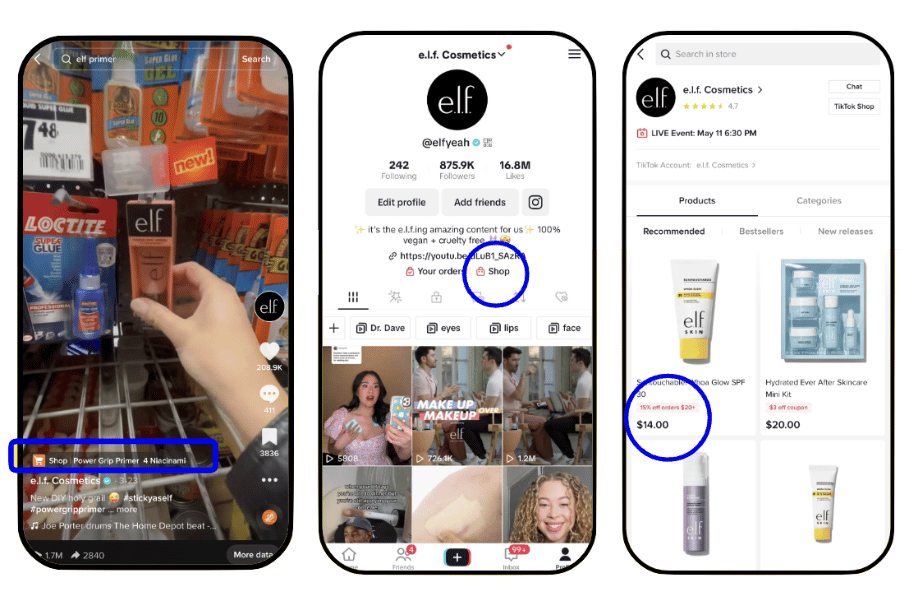
Coordinating posts across multiple channels
Your SEO and social media teams should work together on a content strategy and creative ideas. When you publish a new blog post, don’t just share it once on social media. Create a series of posts with different angles, quotes, and visuals to promote it over several weeks.
For example, for a new article about SEO planning steps, you could:
- Share the main link on Monday.
- Post a quick tip from the article on Wednesday.
- Host a Q&A session on Friday to answer questions related to the topic.
This coordinated effort drives more traffic to your content and reinforces your authority in the niche.
Listening to Users and Feedback from Social Media
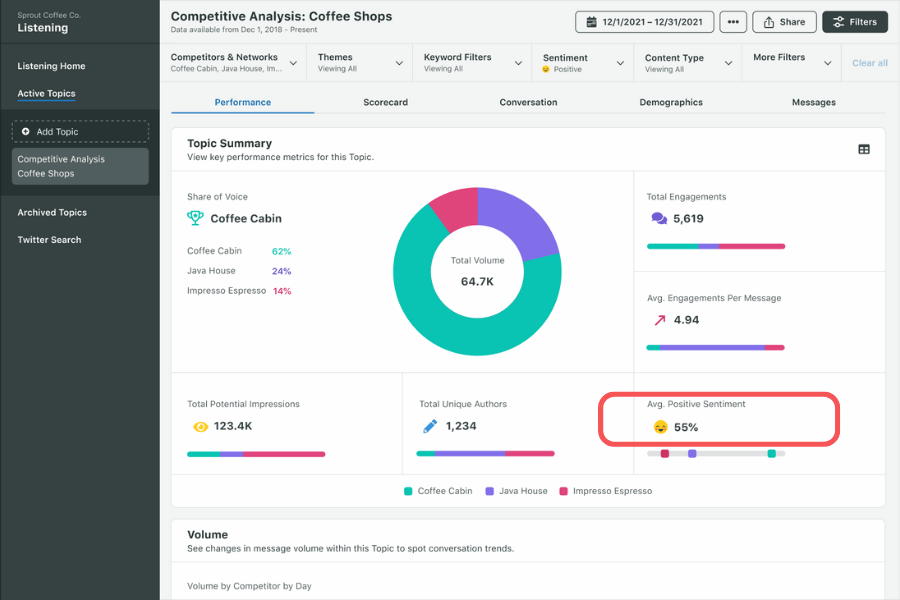
Learning from user insights on social
Social media is a two-way street. It’s not just about broadcasting your message; it’s about listening. Spending a lot of time monitoring comments, direct messages, and brand mentions. This feedback is invaluable for SEO content creation tips.
- What are people asking about?
- What are their pain points?
- What kind of content do they want to see more of?
Social listening tools allow you to capture this feedback. Maybe customers keep asking a version of the same question on Facebook. That’s your clue to create an SEO-optimized article or a new FAQ page.
Leveraging feedback not only improves SEO and content but also builds loyalty. People notice when you listen and respond with solutions.This is a core part of building a successful SEO strategy for SaaS. You’re not just guessing what to write about; you’re using real-world data to guide your content creation.
Building FAQ Pages and Important Question Content
Frequently asked questions are goldmines for SEO. Google often features them in “People also ask” results, and users love quick answers. Social media is where you can discover these questions in their raw form.
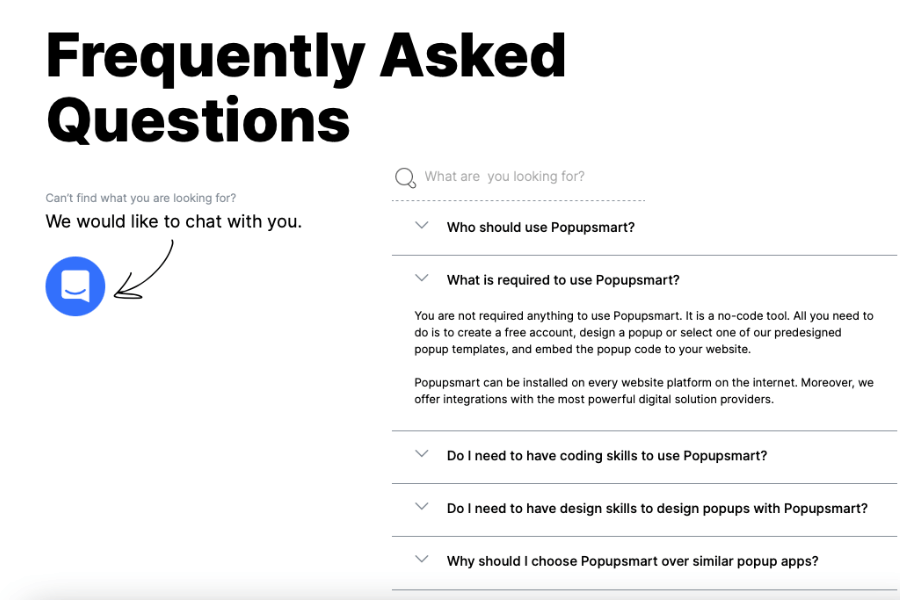
Answering common questions with content
By collecting frequent questions from social platforms and turning them into structured FAQ content, you increase the chance of winning featured snippets. Example: If users on Quora keep asking, “Does social media activity improve SEO?” – that’s a perfect FAQ entry.
Adding schema markup also makes this content more likely to appear in Google’s “People Also Ask” boxes.
For example, if you run a SaaS company and people on LinkedIn constantly ask about pricing models, you can turn that into a structured FAQ page on your site. Optimizing FAQs with keywords increases your chances of ranking for long-tail queries, while improving user experience at the same time.
Improving Performance and Marketing Results
When SEO and social media work together, the impact on traffic and conversions is measurable. Blog content promoted through social channels tends to receive more backlinks, which strengthens domain authority.
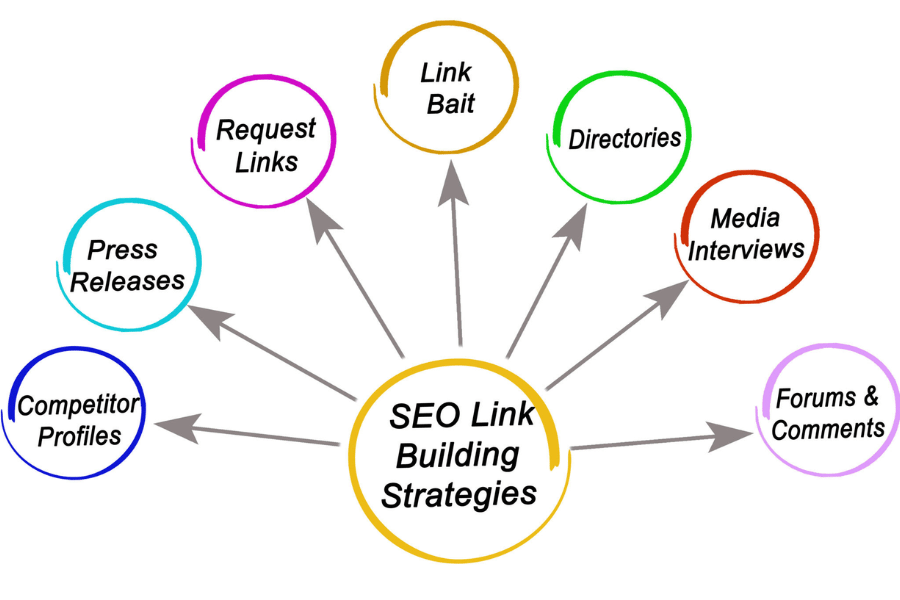
Boosting performance through SEO-social mix
Similarly, SEO insights guide social teams to create posts that meet proven demand.For example, if you publish a blog on “SEO content creation tips” and push it on LinkedIn, the short-term visibility boosts engagement while SEO builds evergreen rankings.
The goal of all this effort is to improve your bottom line. When SEO and social media work together, you’ll see a noticeable lift in your marketing results.
- Increased traffic: Social media drives traffic to your website, which can improve your site’s overall performance signals to search engines.
- Higher engagement: More engagement on your content (comments, shares, etc.) can lead to more opportunities for link building strategies.
- Better conversion rates: By listening to your audience, you can create more targeted content that addresses their needs, leading to higher conversion rates.
Data from the Content Marketing Institute shows that 61% of B2B marketers have seen increased social media engagement in the past year, which translates to better overall marketing performance.
Relevancy Signals and Building Brand Authority
Search engines care about authority, and social media helps build it. When your content is consistently shared, discussed, and linked across social platforms, it sends strong relevancy signals to Google.

Managing brand image via social PR
For example, thought leaders who post regularly on LinkedIn often see their personal websites benefit in search visibility. Why? Because authority and brand presence extend across channels.
Consistency is key here. It’s not about going viral once—it’s about showing up often with valuable content that reinforces your brand’s expertise.
For example, your social media profiles act as an extension of your brand, reinforcing your expertise. The more people talk about you, the more search engines trust you. This is a key component of on-page and off-page SEO. It’s about building a strong digital footprint that extends beyond your website.
Link Building and Partnership Relations
While social media links are “nofollow,” they can still be a powerful tool for link building. How? By helping you build relationships.
Earning backlinks through partnerships
SEO plays a role by identifying which partnerships bring the most backlink value. Social media builds relationships to make those links possible. Together, they strengthen your site’s authority and referral traffic.
- Sharing data studies or infographics increases the chance that bloggers or journalists cite your work.
- Building relationships on LinkedIn or Twitter often leads to guest posting or co-marketing opportunities.
In fact, BuzzStream research shows that 53% of outreach specialists say social media helps improve link-building success rates.
This proves social isn’t just about visibility—it directly impacts SEO authority.
Reputation Management and PR through Social Media
Your brand’s reputation is a critical factor for both SEO and customer trust. A company with a poor online reputation will struggle to rank in search results, no matter how good their SEO is. Social media allows you to proactively manage this.
When SEO and social teams collaborate, they can also prepare for communication crises. For example, if negative news surfaces, your SEO team can publish clarifying blog posts while your social team addresses concerns directly. This combined approach ensures you control the narrative both in search results and in conversations.
- Respond quickly to negative comments: Show that you care about your customers and are willing to address their concerns. This builds trust.
- Highlight positive reviews: Share testimonials and positive feedback to showcase your brand’s value.
- Monitor brand mentions: Use social listening tools to track what people are saying about your brand, both good and bad.
Content Strategy and Creative Ideas
If there’s one place where SEO and social media truly shine together, it’s in content strategy. Both teams hold pieces of the puzzle: SEO brings data-backed insights into what people search for, while social media reveals what people are actively talking about right now.

Planning content that works for both SEO and social
Turning SEO Insights into Social Content
Let’s say your keyword research shows a growing number of searches around “remote team productivity tools.” Instead of stopping at a blog post, you could:
- Repurpose that content into a LinkedIn carousel that highlights five tools.
- Create a short TikTok video demonstrating one tool in action.
- Share an infographic on Instagram with “Top Tips for Remote Teams.
This multiplies reach. You’re targeting searchers who want in-depth information and social users who prefer bite-sized content.
Using Social Listening to Fuel SEO
Sometimes, the spark comes from social first. Social listening tools can surface emerging questions or pain points before they appear in Google’s keyword data
For example, SEMrush spotted discussions around “Google helpful content update” on Twitter. They quickly published an SEO guide and repurposed it into a webinar promoted via social. The blog ranked on page one within weeks, while the webinar drove over 10K sign-ups. Social buzz created momentum, and SEO sustained long-term traffic.
Combining Data for Creative Campaigns
When SEO data and social insights align, campaigns become more creative and impactful. A fashion retailer, for instance, might notice rising search interest in “sustainable fabrics” while Instagram conversations spike around “eco-friendly style.” This could lead to:
- A blog post on “Top 10 Sustainable Fabrics for 2025.”
- An Instagram Reels series showing how to style eco-friendly outfits.
- A TikTok challenge encouraging users to share their thrifted looks.
Identifying and Measuring Success
So, how do you know if your combined SEO and social media strategy is working? Track both.
- From SEO: monitor rankings, organic traffic, and backlinks.
- From social: measure reach, shares, and referral traffic.
Tracking combined KPIs provides a full picture of performance. According to Sprout Social, brands that integrate these metrics see a 24% improvement in ROI from digital campaigns.
Tools like Google Analytics, SEMrush, and native social insights help monitor this data. Continuous optimization is the goal—adjusting both SEO and social efforts based on what the numbers reveal.
Conclusion
So, how can SEO and social media work together? By realizing they’re not rivals but partners. From keyword targeting to reputation management, the overlap is clear. The real value comes when teams break silos and collaborate across channels.
If you’re planning to scale your digital presence, don’t think in terms of SEO or social media. Think of them as two sides of the same coin. At Golden Owl Digital, we’ve seen first-hand how aligning SEO and social drives measurable growth. If you’re ready to take your strategy further, explore our SEO strategy for SaaS guide or reach out for tailored support.






